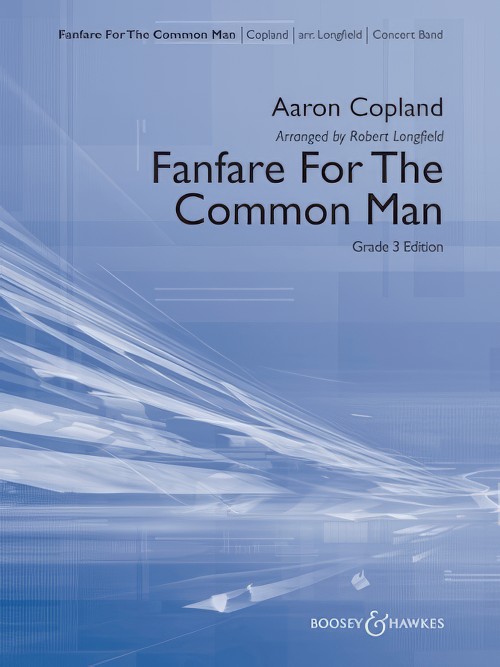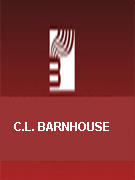Results
-
 £204.99
£204.99Credentium Wind Band Set (Score & Parts)
A spectacular dive via an extended chromatic scale immediately submerges us in a charged and somewhat archaic-feeling atmosphere. Trumpets, horns and trombones resound in rhythmic patterns, buttressed by restless motifs in the percussion. A second theme, in the woodwinds, begins much calmer but is quickly pushed aside by that same brass offensive. This introduction is the musical expression of the sometimes tumultuous early history of the town of Peer in Belgium. It closes with a D scale played over two octaves and repeated three times, symbolizing the church steeples that dominate the townscape. Peer has the credentials of a town, and people should know about it.There follows a rhythmic, turbulent passage: in the course of history, Peer has not been spared the ravages of war, arson, occupation, epidemic and other evils. In contrast, a slow, pastoral, lyrical part expresses the periods of peace and prosperity the town has known, as well as the serene geographic setting that still characterizes the place. Various instruments in groups are developed in solo style while the accompaniment displays vast, painterly images of sound. Now and then an exotic intonation is heard: a variety of peoples and cultures have left their mark on the town.This episode of tranquility and peacefulness comes to a sudden end when, via a surprising, almost chaotic transitional passage, we are in effect transported back to our own time. A hopeful, festive march expresses the confidence in the future that the Royal Concert Band of Peer exudes. This confidence is wholly justified: under the direction of conductor Willy Fransen, the 95 members of the concert band have experienced an extended period of good fortune, and the 75 musicians of the youth band - and the 45 little musicians of the mini-band - are involved in thriving operations. 0:13:15
Estimated dispatch 7-14 working days
-
 £44.95
£44.95DECK THE HALL (With Boughs of Holly) (Simply Classics Concert Band) - Stubbs, Duncan
This popular Christmas carol, believed to be Welsh in origin, first appeared in the early 1700s in Edward Jones's Musical and Poetical relics of the Welsh Bards. Its origins are reputed to have come from a tune called Nos Galan (New Year's Eve) dating back to the 16th century. Today it still represents the joy of Christmas and numbers amongst the all-time most popular carols. American Grade 2 Duration 2:26
Estimated dispatch 7-14 working days
-
£115.00
DIVERTIMENTO FOR BAND (Concert Band) - Woolfenden, Guy
Includes:I. ToccataII. AubadeIII. ScherzoMany of the principal musical ideas for Divertimento for Band are derived from music composed for a documentary film called Country Camera, which celebrated the work of the earliest photographers who recorded a way of life which vanished at the outset of the first World War.The three movements are played without a break. The Toccata pits a four-note motif (which always appears with its mirror image) against several other derived ideas, including a sour horn (later trumpet) figure, a tiny lyrical passage initiated by a solo alto saxophone, and a more gentle, but still staccato episode. Many polytonal devices keep the four-note motif active. The Aubade contrasts a lyrical pastorale, initiated by a solo flute, with a more intense central section on the brass. The Scherzo finale has three main ideas; a tune for principal bassoon and euphonium of a playful child-like nature, a rushing figure for the woodwinds later developed by the full band, and a solo for trumpet and clarinet, involving a descending scale and a lyrical wide-leaping recovery. The exuberant coda is derived from themes from the previous two movements.The world premiere of Divertimento for Band was given at the conference of the World Association for Symphonic Bands and Ensembles in Killarney on 13th July 2007 conducted by the composer, and is affectionately dedicated to Keith Allen, Jayne Rollason and Birmingham Symphonic Winds. -GW
Estimated dispatch 7-14 working days
-
£84.99
Englishman in New York (Concert Band - Score and Parts) - Sting
Sting's song about an Englishman who lives in New York but still sees himself as an outsider became a huge hit for the singer-songwriter and has gone on to be a true classic. The central message 'Be yourself, no matter what they say' is as timeless and universal as the melody of the song, which in Roland Kernen's wind band arrangement is sure to delight your audience. 0:03:45
Estimated dispatch 7-14 working days
-
 £65.00
£65.00Fanfare for the Common Man (Concert Band - Score and Parts) - Copland, Aaron - Longfield, Robert
Arguably the most famous fanfare ever written! Now available in a version written with standard wind band instrumentation and playable by most bands. The key has been lowered and technical demands have been modified, however, this superb adaptation still maintains all the power and majesty of the original.Duration: 3:00
Estimated dispatch 7-14 working days
-
£144.99
Festa Paesana Wind Band Set (Score & Parts)
Lunteren, a village on the Veluwe (a wooded region in the Netherlands), sets the scene annually for a village festival dominated by folklore. Festa Paesana (Italian for village festival) is set to music by several folkloric sketches. The theme in Festa Paesana is partly based on a Dutch anthem (Wien Neerlands bloed); when other lyrics are used it is also known as the Lunteren anthem.The work begins with a festive introduction, completed by chimes and drums, in which pieces of the Lunteren anthem are heard. The music then transitions to represent a horse auction. We hear horses run their first rounds in the auction ring while being whipped. The following theme is partly based on the anthem. The tension of the traditional auction is amplified by an ever-increasing cadence, reaching its climax when the word ?Sold!? is shouted. The night ends with a majestic variation on the Lunteren anthem.The next morning, when the tower clock hits seven times, the village is awaked by the reveille of the heralds. In a fugatic version of the anthem, we can hear the village slowly come to life. This evolves with the chiming of all towers in the village; the celebration can begin. Carriages drawn by horses rumble through the village and thus, it is easy to hear when a horse hesitates or runs amuck. A traditional folk dance group then dances a whirling waltz while the audience shares their pleasure. Musicians march along the scene and take over the waltz theme in their march. Until deep in the night, the musicians are still heard playing in the streets. Meanwhile, we hear the anthem theme being played in a choral variation (in minor). The first time it is played quietly, as a preparation for Sunday. Then it is played in a celebrating way, enabling the devout village residents to remember the past pleasant celebration with satisfaction. 0:08:10
Estimated dispatch 7-14 working days
-
£59.99
God rest ye merry Gentlemen Wind Band Set (Score & Parts)
God rest ye merry, Gentlemen' is an ancient English carol. It was first published in 1833, but it can be traced as far back as the 15th century, which makes it one of the oldest carols known. 'God rest ye merry' is a Middle English salutation. In this manner, people wished one another greatness and might. In modern English, the first line of this carol would read 'May God keep you mighty, gentlemen'. Andrew R. Mackereth has not kept to the original words in his up-tempo arrangement of the carol. It is still clearly recognizable, but the arranger has taken a good many liberties. Sometimes a particular note is held longer, at times motifs follow one another in various parts. If you listen carefully, you may even be able to detect a motif from another well-known song. 01:45
Estimated dispatch 7-14 working days
-
 £49.50
£49.50Gospel John
Jeff Steinberg's "Gospel John" was a great hit for Maynard Ferguson in the 1970's and still sounds totally hip. This new Andy Clark arrangement makes it playable with mid-level concert bands where it is sure to be a favorite with students and audiences alike! Ranges are reasonable and all the sections of your band get a chance to shine. A timeless classic that really rocks!
Estimated dispatch 7-14 working days
-
 £123.75
£123.75Hail to the Lord's Annointed (Concert Band - Score and Parts) - Sullivan, Arthur
This sparkling setting, still as fresh as any recent Broadway medley and never before available, includes the show's best-loved ballads, rollicking patter songs and the rousing finale. The music has been a continuous hit from its 1879 opening through today. Sousa's brilliant 1880 orchestration perfectly captures the happy-go-lucky spirit of Sullivan's show. In this first published edition, Sousa's superb and ever-timely "Pirates" medley has been adapted for modern bands by Keith Brion.
Estimated dispatch 7-14 working days
-
 £45.00
£45.00Hot Fudge Sundae (Concert Band - Score and Parts) - Martin, David
Rock n' Roll sound of the 50's & 60's for the very youngest players. A very unique piece at this level and one that will be extremely popular with students and audiences alike. The band set also includes an optional keyboard part which may be used both as a rehearsal aid or as a performance enhancer with smaller groups. VERY NICE AND STILL LOW IN CALORIES!
Estimated dispatch 7-14 working days
